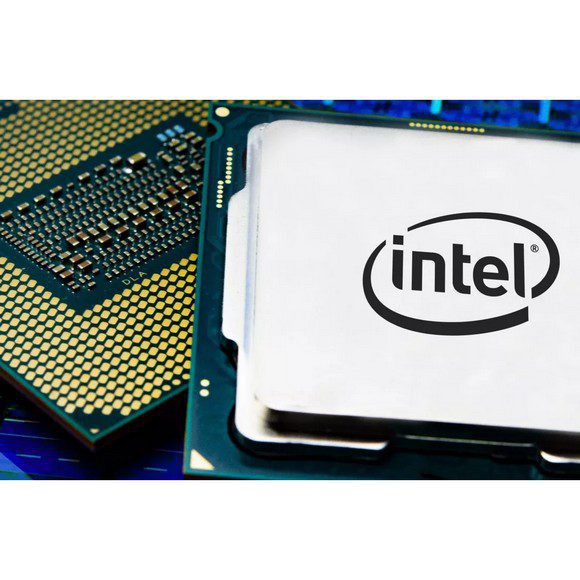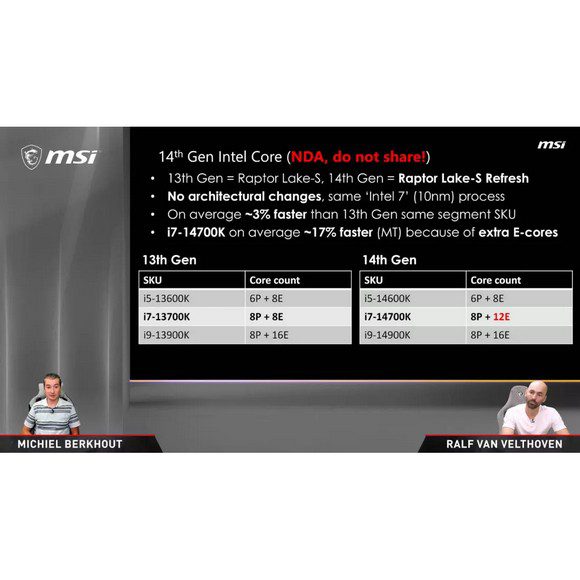Three percent faster than 13th-gen, i7 gets a bigger boost
Over the past few weeks, dependable leakers have put together a clear image of Intel’s future 14th-generation CPUs. Final confirmation of what everyone already believes has happened from one of the company’s hardware partners, meanwhile, is that the new processors probably won’t greatly outperform the 13th generation.
Unintentionally disclosing some last-minute information about Intel’s upcoming CPU generation was a recent livestream from MSI. The snapshot (below) validates core counts, estimated performance ranges, and the lineup’s name—Raptor Lake-S Refresh—even though the video is currently private.
The incident vindicates leakers who have been arguing for weeks that the patch only delivers marginal improvements over the Raptor Lake CPUs currently in use. The Intel 14th generation CPUs are, on average, just approximately three percent quicker than their predecessors despite having the same architecture, core counts, and 10nm Intel 7 technology.
The i7-14700K is the only exception, gaining four efficiency cores for a 17 percent performance boost. However, benchmark leaks suggest that the i5-14600K would represent a modest improvement over its 13th-gen equivalent.

The new generation’s designation is further supported by an Asus error that was rather small. The homepage promoting the Asus Z790, H700, and B760 motherboards states that they support the 14th-gen Raptor Lake-S Refresh in addition to the 13th and 12th versions, according to prolific leaker Momono. While users of other browsers can view it in the HTML content of the page, Firefox and Safari users can read the full title by hovering their cursor over the tab.
Recent BIOS updates from Asus, MSI, Gigabyte, and Asrock confirm that the new CPUs are compatible with motherboards that currently use Intel’s LGA-1700 socket, indicating that upgrading to them will be rather inexpensive. Raptor Lake-S Refresh will probably be more valuable for those who are still using 12th-generation Alder Lake CPUs because of this and the slight horsepower boost.
Owners of Raptor Lake will notice a greater improvement from Arrow Lake because the 15th generation will be released in the second half of 2019. According to the most recent information available, such CPUs should have a large increase in cache and dramatically better integrated graphics performance. However, Alder Lake is a more expensive purchase that is better suited for a system rebuild due to the necessary motherboard modifications and DDR5 RAM.
When Raptor Lake-S Refresh will go on sale has not been specified by Intel. However, earlier rumors suggested that the lineup’s initial members, which would probably just include unlocked K-series processors, may show up in late October. Locked non-K models could appear at CES 2024 in the meanwhile.
